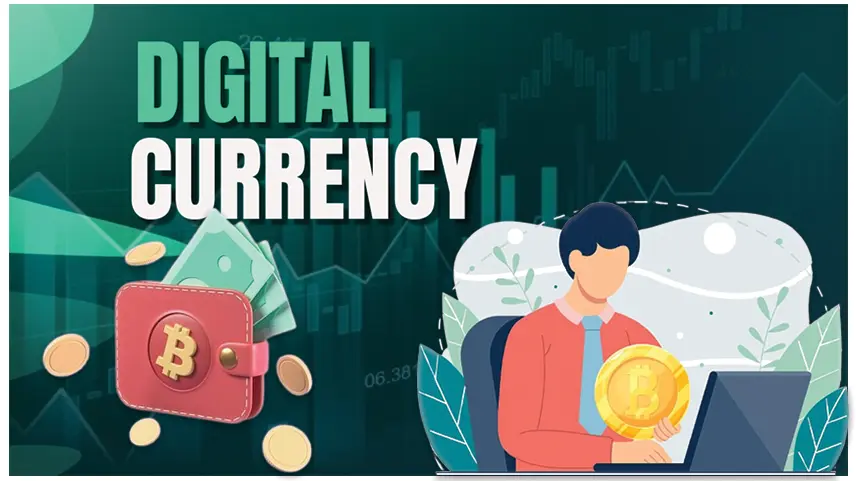Digital Currency
Digital Currency
Digital currency, also known as cryptocurrency, is a type of virtual currency that operates through a decentralized digital ledger called a blockchain. Unlike traditional currency, which is backed by governments and financial institutions, digital currencies rely on complex algorithms and cryptographic techniques to secure transactions and verify the transfer of funds.
One of the most popular digital currency and cryptocurrency Bitcoin, which was created in 2009. All digital currency Bitcoin operates through a decentralized network of computers that use cryptography to verify and process transactions. The supply of Bitcoin is limited to 21 million units, which ensures scarcity and helps maintain the currency's value.

Other popular digital currencies include Ethereum, Litecoin, and Ripple. Each currency has its own unique features and uses cases. For example, Ethereum allows developers to create decentralized applications on its platform, while Ripple is designed to facilitate cross-border payments between financial institutions.
Digital currencies are often seen as an alternative to traditional currency, with some proponents arguing that they offer greater security, privacy, and lower transaction fees than traditional banking systems. However, digital currencies can also be volatile, with their values fluctuating rapidly in response to market demand.
Digital currencies are typically stored in digital wallets, which can be accessed through mobile devices or computers. To purchase digital currency, users can either buy it from a digital currency exchange or mine it using powerful computers to solve complex algorithms.
Despite their growing popularity, digital currencies are not yet widely accepted as a form of payment for goods and services. However, some merchants and businesses are beginning to accept digital currencies as a form of payment, and there are even digital currency ATMs that allow users to buy and sell digital currencies using cash. Digital currency challenges such as regulatory uncertainty, high volatility, lack of widespread adoption, and potential for illicit activities.
Indian digital currency As of April 2023, India does not have an official digital currency, but the government is exploring the possibility of creating one. Can digital currency replace money digital currency will completely replace physical money as it depends on various factors such as adoption rate, technological advancements, and regulatory frameworks. digital currency benefits such as faster transactions, lower fees, increased security, and greater financial inclusivity.
Overall, digital currency facts represent a rapidly evolving field with a lot of potential for innovation and disruption in the financial industry. While they are not without risks and challenges, digital currencies have the potential to offer greater financial inclusion and autonomy to people around the world.

0 comments